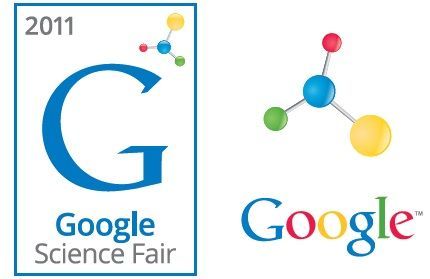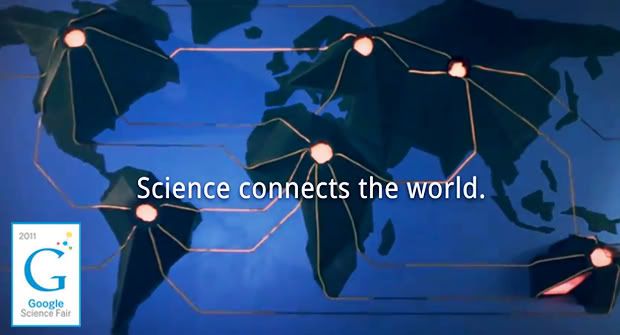
In his State of the Union speech in January, US President Barack Obama proclaimed that “we need to teach our kids that it’s not just the winner of the Super Bowl who deserves to be celebrated, but the winner of the science fair.” A noble (and correct) assessment, to be sure, but one mired in numerous educational and cultural obstacles. For one thing, science fairs themselves are at a perilous crossroads. A New York Times report issued in February stated that not only is participation in science fairs among high school kids falling, but that the kind of creativity and independent exploration that these competitions necessitate is impossible under current rigid test-driven educational guidelines for teaching mathematics and science. Indeed, an interesting recent Newsweek article on “The Creativity Crisis” conveyed research studies showing that for the first time, American creativity is declining. How appropriate, then, that this April (national math education month) brings the culmination of the Google World Science Fair, the first ever competition of its kind transpiring online and open to lab rats from all over the globe. ScriptPhD.com discusses why this could be a game-changer for the next generation of young scientists, under the “continue reading” cut.
One of the most chilling chapters in Thomas Friedman’s brilliant 2005 book “The World is Flat” discusses the ramifications of the globalization of science, and how quickly America is getting left behind. In addition to global “flatteners” (connectors) such as the internet, outsourcing, and yes, even access to free information via Google, Friedman details how hard third-world nations such as India and China work to attain supreme educations in math and science. On the one hand, they are producing more raw talent than ever, which often (due to lack of job opportunities and world-class facilities) finds its way into American (and Western) laboratories and corporations. On the other hand, it leaves American students and scientists ill-prepared to compete in a globalized economy based on information rather than raw production. (See Tom’s talk about global flattening at MIT here.) China will surpass the United States in patent filings by scientists by 2020. They are set to overtake the US in published research output even faster – in 2 years! Disturbingly, US teens ranked 25th out of 34 countries in math and science in the most recent world rankings, prompting President Obama to direct $250 million dollars towards math and science education. How that education is conveyed in classrooms is a subject of quite ardent debate.

Clearly, science education, in its current incarnation, is not working successfully. Unorthodox curricula have been proposed by numerous academic institutions, and even implemented with success in some countries. Furthermore, the idea of iconoclasts and self-taught geniuses, left alone to ferment their creativity, is not new. Albert Einstein famously clashed with authorities in primary school (which he barely finished), noting that “the spirit of creativity and learning were lost in strict rote learning.” In 2009, self-taught college dropout Erik Anderson proposed a major new theory on the structure of spiral galaxies and published it in one of the world’s most prestigious journals. (See ScriptPhD.com’s excellent post on whether creativity can really be measured in the lab.) Enter the Google World Science Fair. Capitalizing on the web and social media-driven knowledge of the current generation, they aim to not only expand on traditional well-known science competitions like Intel and Siemens, but to catapult them into the modern Internet era. Concomitantly, and even more importantly, as the fair’s organizers relayed over the weekend to the New York Times, they wish to improve science and math education in America incorporating a brand that many kids are already familiar with and use with ease. Why not infuse the excitement of a Google search into the staid, antiquated methodologies afflicting much of math and science curricula today? The impacts of science and independent experimentation are wide-reaching and powerful. During a gathering of scientists, students and judges on the day of the science fair announcement at Google headquarters, African self-taught scientist William Kamkwamba shared how from a library book, he was able to build a wind mill that powered his large family’s house, brought water to his impoverished village, but then taught other villagers to build wind mills, and by proxy, improved schools and living conditions. Who knows how many of this year’s global entrants will make such sizable contributions to their communities, or even, as they’re encouraged to do, solve global-scale afflictions?
Beyond the originality factor, he Google competition is important in several ways. It’s virtual and literally open to anyone in the world so long as they are a student between the ages of 13-18, thereby negating the most obvious roadblock to participation in many science competitions: location and affordability. (Though studies argue that internet access is still an overwhelming factor in economic and social equality, which is a not insignificant hurdle for aspiring third world participants.) Secondly, the competition is being judged on a passion for science and ideas, especially those relevant to the world today. In an age when we’re trying to ameliorate diseases, epidemics, the effects of global warming and violently changing weather patterns, urban sprawl and overpopulation, along with an ever-frustrating lack of access to water, food and sanitation by the poor, a few extra ideas and approaches can’t hurt. After all, a 15-year-old Louis Braille invented a system of reading for the blind, 18-year-old Alexander Graham Bell sketched rough ideas for what would turn into the telephone, 14-year-old Philo T. Farnsworth invented the television, and the modern microscope that many entrants will likely use in their experiments was invented by a 16-year-old Anton van Leeuwenhoek! (See more here.)
In the same spirit of hip novelty and digital cleverness that they’ve infused into the age-old science fair, Google hired the team from Los Angeles-based Synn Labs, the same team behind the viral OK Go music video, to create a thirty-second Rube Goldberg-themed video promoting the science fair. It is, perhaps, the highlight of the competition itself! Take a look:
The submission deadline for the 2011 online global science fair is today, April 4, 2011. All information about submission, judging, prizes, and blogs about entries can be found on the Google Global Science Fair homepage. The site also offers resources for teachers and educators looking to gain ways to bring the essence of Google’s science fair into their classrooms. You can also track all projects, as well as interact and exchange ideas with other science buffs, on their Facebook fan page and Twitter page.
ScriptPhD.com encourages all of our readers, clients, and fans who either submitted entries by the deadline, had their kids enter, or know someone who entered the competition to come back and tell us about the experience on our Facebook page. We’d love to hear about it! We wholeheartedly support programs that promote science and innovation, especially applicable to mitigating global social and technological obstacles. Our consulting company mantra is that great creative enterprises are fueled by great ideas. So, too, are science and technology. As such, we applaud Google for reinventing (and virtualizing) science outreach to encourage ideas and transform an entire generation of scientists, regardless of location, education or perceived ability. And if you’re bummed that you missed out on this year’s competition, think of it this way: you have plenty of time to prepare for 2012!
This post was sponsored by Unruly Media.
~*ScriptPhD*~
*****************
ScriptPhD.com covers science and technology in entertainment, media and advertising. Hire our consulting company for creative content development.
Subscribe to free email notifications of new posts on our home page.

